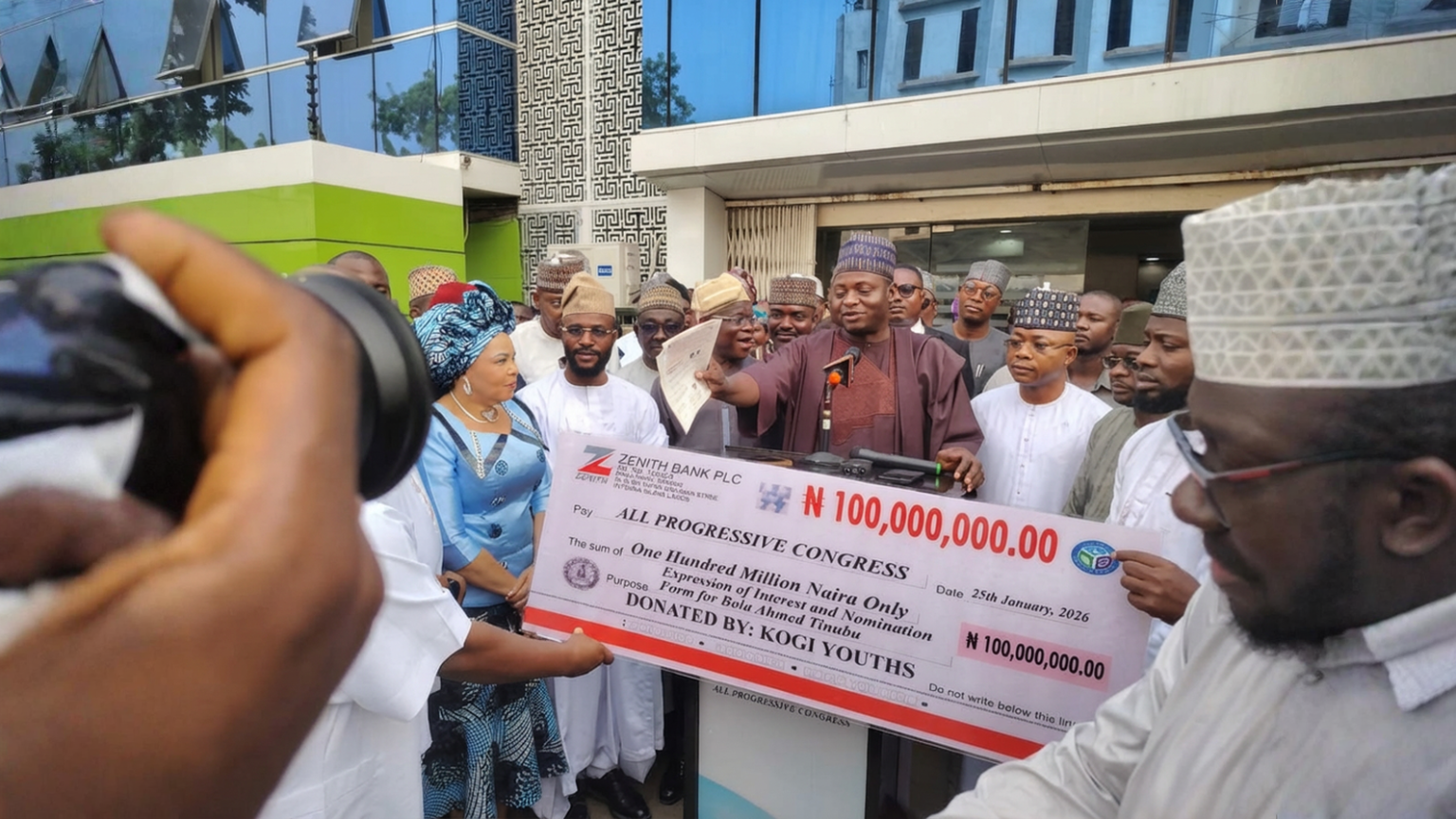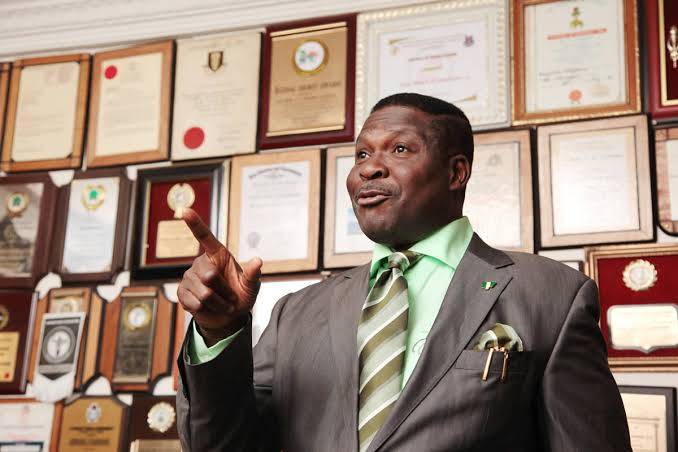By Jude Osuntokun
I have been listening to the broadcast of Dr Tunde Bakare, the nationally renowned and relevant man of God who like prophets of old spoke words to power pointing out to government what can be done to bring our country back to prosperity not just waiting to collect commissions on oil but to build an agriculturally sufficient country, adding value to what it produces on a vast industrial complex. His program can be described as the application of Biblical Joseph’s economic plan to the development of ancient Egypt to our situation in Nigeria. Good old agriculture is the way to economic development of Nigeria. Agriculture does not mean food production alone but the growing of tree crops.
When I was very young during the colonial days, we did not import food before we ate. As far as I can remember, agriculture and agricultural development belonged in the realm of local government particularly the towns and villages. The same thing was true of education and other things which have now been appropriated by either the state or federal (central) government. In the early 1950s when I was in primary school, every school had what we called “school farms”. I don’t know what people in Lagos had but I have a feeling they must have had school gardens because of the scarcity of arable land in the Lagos colony. But in my place in Ilawe Ekiti where I was born, we all had school farms. It did not matter how young or old one was, there was always a time devoted for farming. When it was time for harvest, it was a big celebration marked by drumming, dancing and eating. In my place, we only planted yams, corn, groundnuts, vegetables, peppers, onions, tomatoes and other edible vegetables. At harvest, there was public sale of our products and whatever was left was shared among teachers, students and the clergy since most of our schools were sectarian schools established by the various churches that were around in those days. When I entered Christ School, Ado Ekiti in 1956, we continued with the same tradition and added more things that we produced. Agriculture was then properly provided for in the school curriculum. Wednesday morning in alternate week was devoted to agriculture. Piggery and poultry were then introduced in addition to growing of root crops and vegetables. Most of the operations were done by students who belonged to agriculture society by choice. The whole thing was supervised by an “Agriculture Master” who had very light academic teaching.
At harvest time, the entire school feasted on the produce from the school farm during the day of harvest celebration and the agriculture society became popular because of the free pork shared with other students. The intention in students’ participation was to generate interest leading to many of them going to agricultural schools set up by all the regional governments of the country to train extension workers in agriculture to show our peasants the way forward in agricultural development in the country. Later, the Awolowo government of the 1950s established farm settlements to engage the overflow from free primary schools who could not find places in the very few secondary schools and “Modern” schools specifically established to absorb them. The Awolowo schools were copied by Michael Okpara and Ahmadu Bello, respectively premiers of Eastern and Northern Nigeria. The upshot of this was that agriculture, both peasant and modern, were made available in Nigeria. Unfortunately, we did not progress towards industrial agriculture of large commercial agriculture involving the use of modern tools on large estates.
Throughout the years of Nigeria’s development, our largely peasant agriculture has never failed us. Perhaps that is where we went wrong. We should have developed vast agricultural estates either as state venture or private enterprises to produce food for home consumption and export particularly in the years of huge oil earnings in the 1970s. Now the urban population is swarming with young people who have refused to go to the farms but have been attracted by the bright lights of the cities and are only interested in white collar jobs or at worst in riding motorcycles to ferry people around in unproductive and unprofitable ventures sometimes extending to criminal tendencies. To augment their incomes, the urban proletariat and poor peasantry have taken to crimes of kidnapping and countrywide brigandage to fend for themselves and to satisfy their tastes and unrealistic desires based on their exposures to global television and cheap films. All this has led to shortages all round and we must do something about it.
The greatest tragedy that a country can face is starvation. It is natural for people and even animals to do everything to feed themselves. Self-survival is the first law of nature. No matter how many soldiers or police we may have, man must first answer the law of nature. We have a reached the critical point where we have to find food for everyone. We once had “Operation Feed the Nation” during General Olusegun Obasanjo’s military administration and program of “Green Revolution” during the presidency of Shehu Shagari. We had great intentions then but they did not translate to reality. I remember everyone was called upon to grow something behind or in front of their homes to reduce the cost of food imports.
The program of the “Green Revolution” put enormous resources and emphasis on large dams and large estates of rice, corn, and wheat. We have to revamp the programs and go back to them and this time, make them work. The growing population of Nigeria which we have refused to curb will not permit failure this time. We must do something about our galloping population and our open borders which allow people from Niger, Chad, Benin, Togo and other West Africans to flood our borders. If we don’t tackle our population problem, we will not solve our food problems.
The solution to our population problem is both internal and external. We must all ask ourselves what we as individuals have contributed towards them. Ask how many children and grandchildren you as individuals have contributed to the rising population creating a future population bomb. Gone are those days when having many children are signs of affluence and power. Today they are signs of poverty and problems.
Now that we are beginning to seriously look at the structural configuration of the country, we should begin to realise that structures go beyond politics and the economy, pivotal as they appear. Structure should include production particularly who and where things are produced. We should look back to the future, so to say, in the ways we run our country. The closer we are to the grassroots in agriculture, the better and more profitable and productive we are likely to be. The same thought should inform security and policing. The more secure we are at the village level, the more we are likely to be at the national level. The more secure we are, the more food secure we would be as a nation. It is also generally hazarded that the more food secure a country is, the more politically stable and economically viable a country would be. If a country is stable and secure at home, the more it would be able to wield influence and power abroad. To be where we want to be internationally, we must first be able to feed and secure ourselves. A hungry man is an angry man and an angry man cannot think rationally. A mad man is entertaining but no one wants to be a parent to a mad child. This is the situation facing us where the subject of our conversation these days is the cost of tomatoes, peppers, onions, bread and rice. A serious country’s concern should go beyond food which has in most countries been assumed to be normally available whether locally produced or imported. Nigerians must not be allowed to starve.
Corrigendum:
My last article on Nigeria as a “A Republic of a thousand kingdoms “ omitted the fact of the significance of the Ooni of Ife as the fountain of both the Oba of Benin and the Alaafin of Oyo before the two kingdoms developed into empires .I have written in the past about the interconnectedness of Ife , Benin and Oyo. I am gratified that my article in The Nation is read globally .The omission is regretted.














